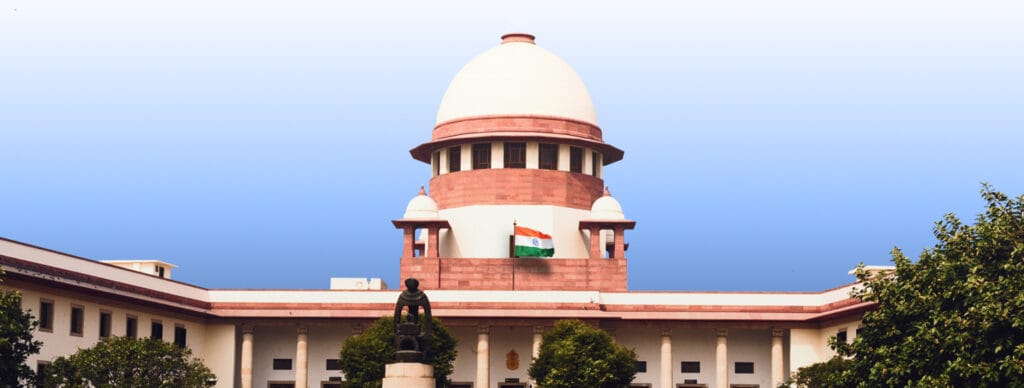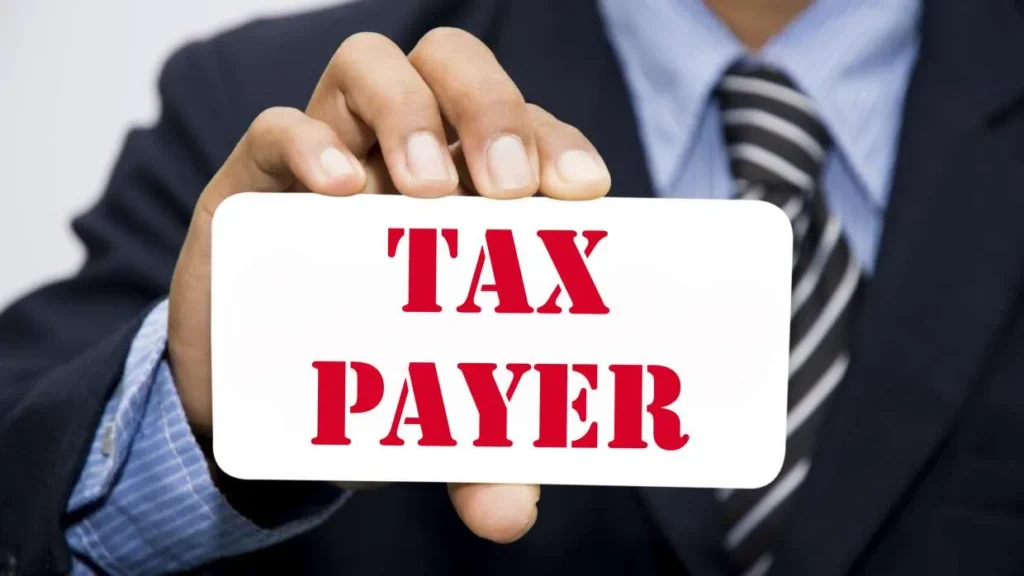Supreme Court: A recent Supreme Court decision has brought major relief to Indian taxpayers and businesses. Until now if someone wanted to appeal against a GST demand raised by the authorities they had to make a mandatory pre-deposit of 10% of the disputed tax in cash. Even if they had enough Input Tax Credit (ITC) in their electronic credit ledger they were not allowed to use it for this purpose.
But now the Supreme Court has clarified that taxpayers can use their ITC to make this pre-deposit. This decision is not just technical it has major financial and practical implications for businesses especially MSMEs who often face cash flow problems.
What is Input Tax Credit (ITC)?
To understand the case better we need to understand what ITC is When a business buys raw materials goods or services it pays GST to the seller. Later when the same business sells the final product or service to a customer it collects GST from them. The business does not have to pay the entire collected amount to the government. It can deduct the GST already paid while making purchases. This deduction is called Input Tax Credit.
What is the Supreme Court judgement on GST ITC?
When a business disagrees with a GST order for example if the tax department says you owe ₹10 lakh in taxes—you can file an appeal. But before doing so the law requires you to make a pre-deposit. This is like a basic condition to move forward with your appeal.
The law requires you to pay:
- 10% of the disputed tax amount for the first appeal.
- Another 20% if you go for a second-level appeal.
So if the disputed tax is ₹10 lakh you must pre-deposit ₹1 lakh to file the appeal. Until now the GST system allowed this amount to be paid only in cash through the electronic cash ledger. Even if you had ₹10 lakh sitting in your credit ledger you couldn’t use it. This created a big cash flow problem for businesses.

What Was the Supreme Court Case About?
The case started when Dishman Carbogen Amcis Ltd a Gujarat-based pharmaceutical company filed a petition. The company argued that it should be allowed to use its electronic credit ledger (ITC) to pay the mandatory pre-deposit. The Gujarat High Court had ruled in the company’s favor earlier saying that ITC could be used for pre-deposit. The tax department challenged this ruling in the Supreme Court. On May 17 2025 the Supreme Court dismissed the department’s appeal meaning it upheld the Gujarat High Court’s decision. The court confirmed that there is no legal restriction on using ITC for making pre-deposits. It said the rules must be read in favor of the taxpayer when there is no clear bar.
ALSO READ: Delhivery’s Big Comeback: From Losses to Profits and a Bright Future Ahead!
Why Supreme Court Is This Decision Important?
1. Easier Access to Justice
Businesses now don’t need to worry about arranging extra cash to file an appeal. They can use the credit already available in their GST account. This helps small and medium businesses who may not have spare cash but do have ITC from past purchases.
2. Better Cash Flow Management
Cash flow is the lifeblood of any business. Earlier blocking funds just to file an appeal made things harder for businesses. Now with the freedom to use ITC companies can manage their working capital better.
3. Avoiding Double Financial Burden
Earlier businesses had to pay tax once during regular business and then again had to set aside real cash for pre-deposit even when they had ITC. Now this double burden is removed.
4. Reduced Litigation and Clarified Law
There were many conflicting rulings from different courts. The Supreme Court ruling settles this issue once and for all. Businesses across India now have legal clarity. Supreme Court
What Experts Are Saying
Many tax professionals and industry experts have praised the judgment.
According to experts:
- This move will unlock crores of rupees stuck in GST credit for businesses.
- It will encourage fair appeals as small players will no longer be stopped just due to lack of cash.
- It is a taxpayer-friendly interpretation of GST laws.
- Industry bodies like FICCI and CII have also welcomed the decision.

What Should Taxpayers Do Now?
Here are some key steps businesses should take after this ruling:
- Review Past Appeals: If you avoided filing an appeal earlier due to cash constraints you might reconsider it now.
- Use ITC Wisely: Businesses should ensure their credit ledgers are up to date and verified so the ITC can be used for future appeals.
- Consult with Tax Advisors: If you’re in the middle of a dispute talk to your CA or GST expert to revise your approach based on this judgment.
What Does This Mean for the Government?
Some in the government were concerned that allowing ITC use for pre-deposits might reduce immediate cash inflow into the treasury. However this view does not hold when you consider that ITC is already a legitimate tax paid.
This move promotes a more balanced and fair tax environment and encourages compliance instead of penalizing honest businesses.
Why is ITC blocked in GST?
Input Tax Credit (ITC) is blocked in GST in certain cases to prevent misuse fraud and revenue leakage. The GST law (Section 17(5) of the CGST Act) lists specific situations where ITC is not allowed including Supreme Court
- Personal use goods/services (not for business).
- Motor vehicles (with some exceptions).
- Food beverages and club memberships.
- Construction of immovable property.
- Goods lost stolen or destroyed.
- Goods used for exempt supplies.
These blocks are in place to ensure ITC is used strictly for business-related taxable supplies.
What is the new rule of ITC in GST?
As of April 1 2025 significant changes have been implemented in India’s Goods and Services Tax (GST) framework concerning Input Tax Credit (ITC). These reforms aim to streamline ITC distribution enhance compliance and provide relief to businesses. Below is an overview of the key updates
Mandatory Implementation of Input Service Distributor (ISD) Mechanism
Effective April 1 2025 the Input Service Distributor (ISD) mechanism has become mandatory for businesses with multiple GST registrations under the same Permanent Account Number (PAN). This change introduced through the Finance Act 2024 and enforced by Notification No. 16/2024-Central Tax replaces the previously optional cross-charge method for distributing common ITC.
Key Requirements:
ISD Registration: Businesses must register as an ISD to distribute ITC for common input services across different branches.
GSTR-6 Filing: ISDs are required to file monthly GSTR-6 returns detailing the distribution of ITC.
Timely Distribution: ITC must be distributed within the same month it is received to ensure accurate credit allocation.
Implications:
Enhanced Compliance: The mandatory ISD mechanism ensures proper allocation of ITC reducing discrepancies and potential disputes.
Penalties for Non-Compliance: Failure to adhere to the ISD requirements may lead to denial of ITC claims and penalties starting at ₹10000.
Supreme Court Ruling on ITC Utilization for GST Appeals
In a landmark decision on May 19 2025 the Supreme Court upheld a Gujarat High Court ruling allowing businesses to utilize their accumulated ITC from the Electronic Credit Ledger (ECL) to make the mandatory 10% pre-deposit required for filing an appeal under the GST law.
Significance:
Improved Cash Flow: Businesses can now leverage existing tax credits instead of mobilizing additional cash for legal procedures
Ease of Compliance: This decision simplifies the appeal process making it more accessible for businesses contesting GST claims.
Revised E-Invoice Reporting Requirements
To enhance compliance and transparency the government has introduced stricter e-invoicing timelines:
30-Day Reporting Window: Taxpayers with an Aggregate Annual Turnover (AATO) exceeding ₹10 crore must report their e-invoices within 30 days of issuance.Impact on ITC Claims: Delayed submissions will be rejected by the Invoice Registration Portal (IRP) potentially affecting the taxpayer’s ITC claims and compliance rating
